The first global database of urban water sources and stress finds that one in four major cities use more than 40 per cent of the water available to them. This proportion is lower than previous estimates, in part because the new study accounts for the fact that many cities draw on distant watersheds, rather than […]
Tag: Québec
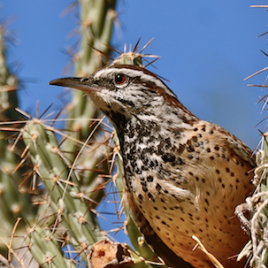
It takes a community to raise a healthy bird
A new study shows that birds that cooperate to raise their young have better year-on-year survival than those that don’t. In certain bird species – found mostly in Australasia or Africa – children from the previous year and from other parents help raise the newborns. A careful review of the research on this rare phenomenon […]
How smell can relieve shopping anxiety
Researchers have found that smelling something reminiscent of an open space can relieve anxiety among people shopping in a crowded store, and vice versa. 197 students were invited to a mock shopping space that was either crowded or arranged in a mostly empty, minimalist design. The subjects shopping in a crowded space reported that smells […]
Scientists reveal how leukemias resist drugs
Scientists have determined how some leukemia cells resist treatment by current cancer drugs, opening the door to new ways of treating such cancers. The team examined drug-resistant cancer cells in the lab and found that they had higher levels of a family of enzymes called UGT1A as well as another enzyme called GLI1.Together, these enzymes […]
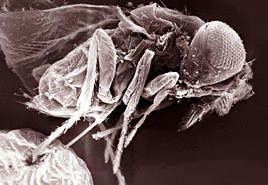
Temperature influences gender of parasitic wasp
Extreme climatic events could influence the sex ratio of a parasite that controls pests such as the European corn borer, a new study shows. The parasitic wasp Trichogramma euproctidis lays its eggs inside the eggs of moths, preventing the moth egg from hatching into a caterpillar. The study showed that fewer females were born at […]
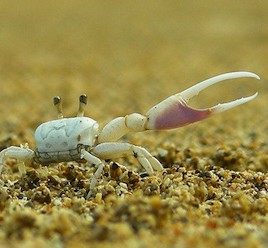
How baby fiddler crabs catch a wave
A new study shows how some species of fiddler crabs can compensate for changing temperatures when timing their courtship. Fiddler crabs sync up the hatching of their young with bimonthly higher tides in order to ensure they have the best chance of escaping predators. But at some times of year, cold temperatures can slow embryo […]
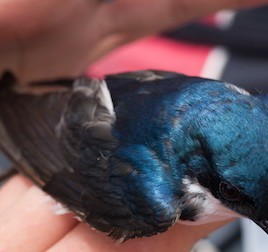
Tree swallows in Quebec in decline
A new study shows that tree swallows between Montreal and Sherbrooke became fewer (-19% population decline) and smaller (-8% weight loss) from 2005-2011, especially the females. Insect-eating birds are in decline all across northeastern North America, and pesticide use is a suspected culprit, but the authors did not find a link between weight loss and […]
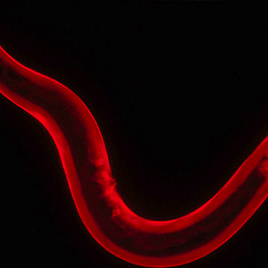
Cell aging theory turned upside down
A new study shows that raising the level of free radicals in the nematode worm C. elegans actually increases its lifespan, contrary to popular belief. Free radicals are the reactive molecules that sometimes damage DNA and the ones that antioxidants are supposed to fight against – could in some cases help us live longer. The authors show […]

DNA sensor shines light on cancer
Researchers have created a DNA-based sensor capable of lighting up when it gets near cancer cells. The nano-sized construct alters its shape in response to tiny changes in pH; these contortions bring together two molecules which react to give off a light signal. Because cancer cells are often at a slightly different pH than non-cancerous […]
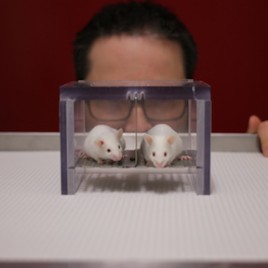
‘Scent of man’ stresses lab mice out 
A new study shows that the behaviour of mice used in scientific experiments was altered by the presence of men, but not women. The study shows that in the presence of male experimenters and male odours, mice were less sensitive to pain, a phenomenon called stress-induced analgesia. Lab mice are more stressed when the […]
The variation inside
A Quebec-based study of 1000 people has found that even those with similar genes can have big variations in how those genes are expressed. The study looked at mitochondria, components of the cell that have their own DNA. The researchers found that when this DNA is transcribed to RNA, there was a lot of variation […]
When not to treat prostate cancer
A new study suggests that in some cases, not treating prostate cancer can increase quality of life for patients and save millions of dollars. The Quebec-based study found that active surveillance – watching and waiting – for five years could save up to $96 million for the health care system while improving quality of life […]
The evolution of self-control
A new study has found species with larger brains (great apes and old-world monkeys) may have more self-control than species with smaller brains (birds and lemurs).

Empowered seniors make better medication choices
A randomized, controlled trial of 303 seniors from Quebec found that a simple intervention resulted in 27% of them becoming sleeping-pill free. The study emphasizes the importance of seniors being active and able participants in decisions about their health care. The researchers used a handout describing the risks of sleeping pill use and encouraging the […]
Canada’s crumbling infrastructure
As of March 27, 2014, Canadian provinces, cities and municipalities can apply for their share of the federal government’s New Building Canada Fund, which provides $14 billion over 10 years to help improve infrastructure across the country. This comes as structures like the Champlain bridge in Montreal and the Gardiner expressway in Toronto are already […]
Aboriginal Food Security in Northern Canada
About 12 per cent of Canadians wake up each morning unsure of whether or not they are going to be able to get enough to eat that day. Many of these individuals live in the North; for example, 72 per cent of Nunavut Inuit households experience moderate or severe food insecurity. The problem is reaching […]
